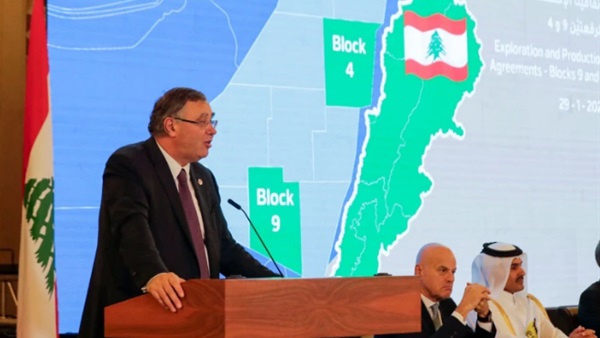Unlocking Lebanon's Potential: Overcoming Challenges to Tap into its Oil and Gas Reserves and Establish Effective Governance for Sustainable Wealth

Lebanon looks to tap into its oil and gas reserves as it
signs a deal with Israel to create permanent maritime borders in the eastern
Mediterranean. The two countries have been technically at war since 1948, and
the deal comes after over 12 years of negotiations. Many countries in the
eastern Mediterranean have taken steps to explore their offshore gas reserves
in recent years, with Israel already extracting commercial quantities of
natural gas. However, Lebanon, which is in dire need of economic relief, is yet
to extract any reserves. In January, the government signed an agreement with
TotalEnergies, Eni, and QatarEnergy to begin exploration later this year, and a
new deal with Israel could unlock the potential for Lebanon's oil and gas
sector.
Lebanon's potential offshore oil and gas reserves could
become an economic lifeline for the country, but creating effective foundations
for exploration and extraction may be challenging in a politically divided
Beirut. Lebanon has a track record of systemic corruption, widespread nepotism,
and political patronage, which may prevent the country from reaping potential
gains from oil and gas revenues. Institutional transparency and access to
government information are key to attracting foreign investment and achieving
stability in Lebanon's business environment. Three institutional challenges are
expected for Lebanon in accessing its resource wealth, which, if overcome,
could finally unlock its potential for the benefit of its people. The
challenges include a sectarian political system, poor management by the
Lebanese Petroleum Administration (LPA), and the potential for political elites
to seize oil and gas investments for personal or political gain. All of this
occurs against the backdrop of political turmoil, with Lebanon having failed to
form a government since parliamentary elections in May 2022, resulting in a
suspended parliament.
Lebanon faces two major challenges as it plans to extract
its offshore oil and gas resources. Firstly, a law has been put in place to
increase transparency in the petroleum sector, but the Parliament is currently
discussing different proposals to create a sovereign wealth fund to ensure the
resources are preserved for future generations. Secondly, there are concerns
about political conflicts and secret deals that could affect the management of
the funds, as well as the possibility that officials could redirect revenues
towards government spending rather than investing in future security and
prosperity. Analysts warn that if not managed properly, the sovereign wealth
fund could become a source of corruption rather than protection.
Lebanon faces challenges in managing its sovereign wealth
fund due to a lack of proper governance structures and a weakened government.
The Santiago Principles, which provide detailed recommendations for the proper
governance of sovereign wealth funds, including transparency, accountability,
wise investment practices, and open dialogue, were not signed by Lebanon in
2008, but it should consider following them in the future. The country could
also consider following a similar radical approach to Alaska, which gives every
Alaskan a direct transfer of capital from gas revenues as a tax refund.
Alternatively, Beirut could follow in the footsteps of Norges Bank Investment
Management in Norway, which invests oil and gas revenues in safe bonds and
stocks that help avoid corruption and conflicts of interest.
However, even with all the correct structures for managing
oil wealth, the latest available data shows that Lebanon is burdened with a
growing government capacity. Budget cuts and wage erosion due to excessive
inflation have already weakened the already weak public administration,
resulting in a mass exodus from the civil service and absenteeism, leading to a
brain drain caused by migration.
The vacancy rate in Lebanon's public sector is 72%.
According to the latest government assessment of the impact of financial crises
on institutional capabilities, at least one service line has been suspended in
52.6% of the public agencies surveyed as of December 2021, and only 40% of
these agencies have confirmed that they have the ability to maintain service
delivery beyond 2022. The World Bank's 2021 report confirms that these
conditions could "lead to a human capital disaster, recovery from which
will be extremely difficult."
Since 2019, many public sector employees who were trained by
the Libyan Planning Authority to organize gas exploration and production have
left. More importantly, the LPA's board of directors' tenure ended in 2018 -
and since then, the agency has lost most of its employees, including two of the
six members of the board. The article offers the possibility of following the
Santiago Principles, Alaska's model, or Norges Bank's example to address the
issue.







